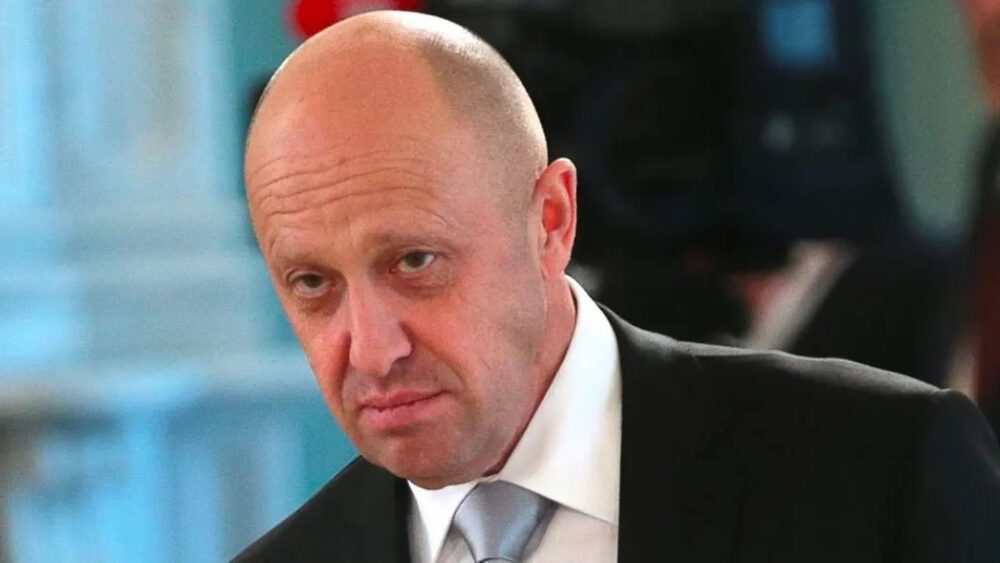via PassBlue
It was all over in a day. The Wagner chieftain Yevgeny Prigozhin’s rebellion against Vladmir Putin, over his dissatisfaction with the regular Russian army’s failures in Ukraine, collapsed so quickly that the United Nations Security Council, the UN General Assembly and the UN secretary-general never even had time to issue statements on the crisis — although the latter did so on Sunday afternoon. Not that the UN response really mattered since it is not allowed to intervene in a country’s domestic affairs.
But the failure of Prigozhin’s putative insurrection, nonetheless, is incurring a number of international repercussions. Already the consensus among most observers is that the surprise, if abrogated, assault, has weakened Putin’s hold on his office. Indeed, it has embarrassed him in front of the world (especially, with his most important partner, China), exposed the fractures in his military forces and tarnished his image as a strongman.
One consequence today also cannot be ruled out — Prigozhin’s standing in Russia. Yes, the rogue skipper decided to stop his armed drive on Moscow. Yes, he did not rally regular Russian troops to his cause, as he had hoped. Yes, he surrendered his militia. And, yes, he has been banished to Belarus. Still, he could play an important role in his country. He drew applauding crowds in Rostov-on-Don, a major port in southwest Russia, after seizing that city, and his soldiers encountered little resistance on the highway leading to Moscow and were even given food and water along the way. These are hints that he may yet have substantial popular backing in Russia.
It seems he may well be better situated in his Belarus exile (assuming Putin doesn’t double-cross him) than expected and could be viewed as a populist alternative to Putin. Prigozhin undoubtedly helped himself, too, among many sectors of the Russian populace, before his departure, by arguing publicly that the Ukraine war was a mistake, that the threat of NATO was overblown and that too many Russian young men have died in vain in a futile conflict. What an extraordinary turnaround for this man, given his past reputation as a ruthless butcher in the Ukraine war.
In any event, the smell of blood is in the water. The besieged Russian president’s fate is up in the air. A variety of additional results are now imaginable after the Prigozhin escapade.
First, it is clear that Putin, having lasted for 23 years in power, will not leave his post. He will strenuously hold onto his authority by all means possible. He still has the apparent backing of his intelligence services, the military, the oligarchs and the population at large, at least according to recent polling. But his reign is now subject to more insults, potential scuffles and surely less room for maneuver. His presidency is sitting on a shrunken power base. His future is, for the first time in decades, in doubt.
Second, given all that, would he consider suing for peace? He could certainly consider exploring talks with Ukraine to end the war through the UN or the European Union. But to do so, he would surely demand, in exchange for a Russian troop withdrawal, guarantees that he be immunized from judicial punishment for the atrocities his troops inflicted on Ukraine. That, however, may be a nonstarter. A settlement, though, would keep him in power — which is all he really wants — even as a diminished figure. For a cynical, haughty and brutal man, that may be the only course.
Third, though, facing doubts about his survival, could Putin consider simply not running again for the presidency in 2024? Prigozhin’s putative attack is obviously a sign that Putin faces a battered future. Now, with the Ukrainian invasion increasingly looking like a lost cause, his economy faltering, his nation’s isolation almost absolute around the planet and his own country a stumbling former world power, maybe this moment could compel him to seek a Yeltsin-type exit. He would resign from office and pick a successor who would promise to pardon him for his war crimes. Such an arrangement would allow him to escape the onus of having to settle the failing war. However, would his successor be worse than he is?
Fourth, if after all this, he stubbornly clings to power, he risks fomenting a spontaneous grass-roots uprising that could draw in disillusioned members of the military and officials from the FSB, or Federal Security Service (the old KGB agency), restive oligarchs and a dubious public, all embittered by the mess Putin created in Ukraine. Then, would a genuinely free election follow? Could an Alexei Nalvany, for example, be released from prison and be allowed to run? The question arises, in short: Who would succeed Putin? It is hard to imagine that high-level officials in Moscow, at present mainly hard-liners, would permit a truly democratic opening, even amid a popular revolt.
In any case, the mini-mutiny accomplished a remarkable change. It raised questions about Russia’s weaknesses, about Putin’s durability, about even a possible liberalization in the country. That alone is a considerable achievement for a nation trapped so long within Putin’s authoritarian system. The political discourse in Russia has dramatically altered.


Comments are closed.